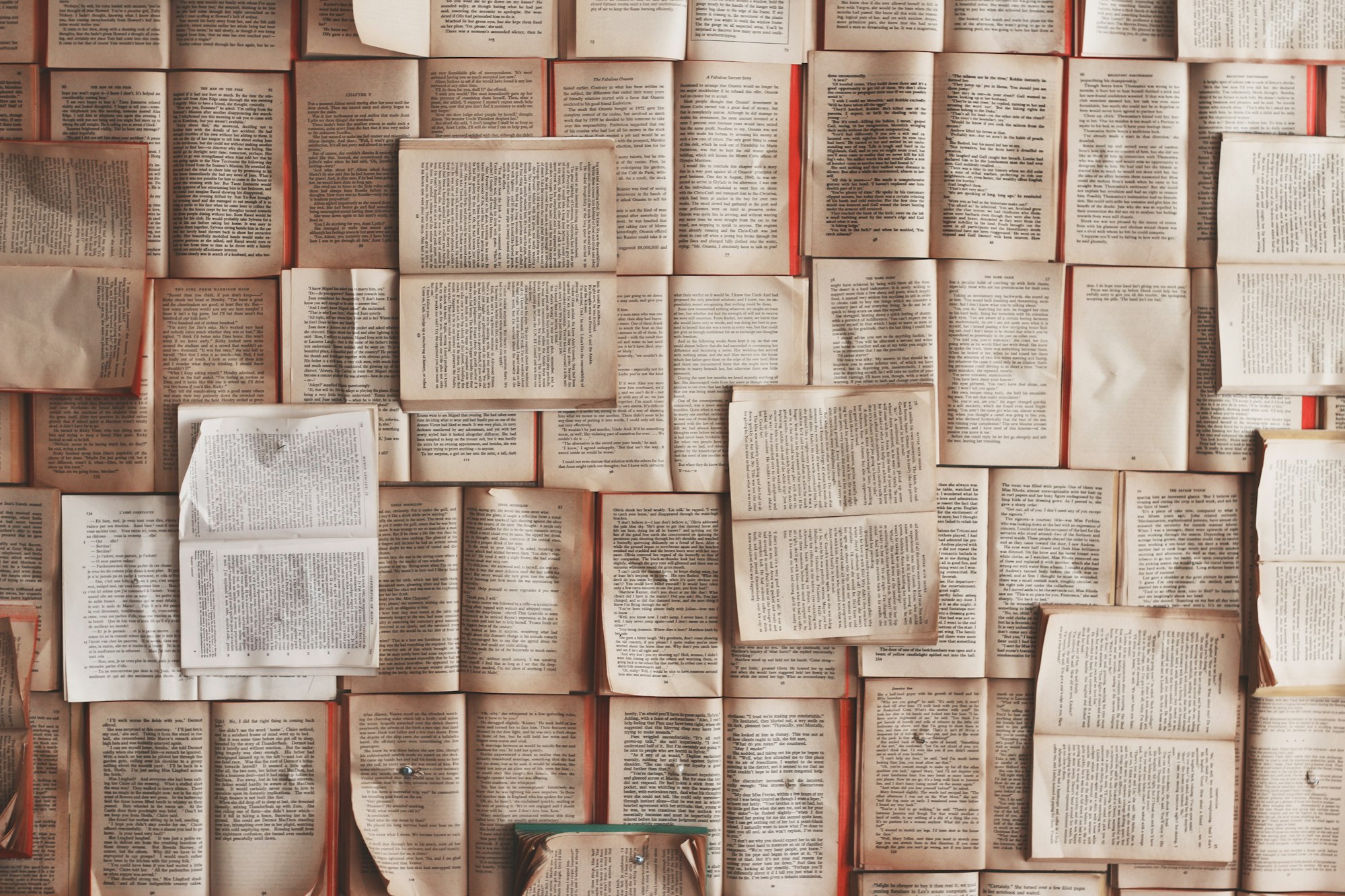
On reading
Last week, motivational writer and bookshop owner Ryan Holiday (he of the Daily Stoic and a bunch of other newsletters; if you're constantly being reminded that you should have read Marcus Aurelius's Meditations, you're probably subscribed to one of them) published a post on his blog titled These 38 Reading Rules Changed My Life. I read it, and – while I wouldn't claim it changed my life – several of the points he made definitely chimed with my own observations after forty-odd years as an avid reader.
Physical books only
This rule gets my unadulterated thumbs up. Ryan was making more of a comparison with audiobooks (another format of which I have never seen the attraction) but I would also put e-readers, Kindles and the like, in here too. Sure, raving about the smell of old books is now just a cliché, but I find immense value in having the ability to flip back and forth while reading, or to physically see your progress through a book and how much farther you have to go.
Hard disagree on his preference for hardbacks, though – too much air travel has forever soured me on carting about something that heavy. Paperbacks all the way.
Classics are classics for a reason
One hundred percent, yes! Sure, they are often intimidatingly long (The Count of Monte Cristo, anything by Dostoevsky), painfully slow-moving at times (Thomas Hardy, Proust), and written in a style that is at times hard (Homer, Milton) or near-impossible (Ulysses) to read comfortably ... but if anything is worth the effort, it is reading the acknowledged classics of literature. I used to try to split my time by reading one classic, one modern, and one old favourite in turn; I no longer follow that rule, but each time I pick up a 'classic' it almost always ends up being one of the best things I've read that year.
Don’t be a book snob
This rule is not so much something I agree with, but more something I need to work on myself. I've always said life was too short and there are too many great books out there to bother reading cheap airport thrillers by people like Lee Child; but then I read one of his books, and ... it wasn't half bad. Most bestsellers are that way for a reason, as Ryan says. (But, as Ralph Waldo Emerson advised when he wrote, "Never read a book that is not a year old," I think it's unlikely I'll start buying novels simply because they are at the top of the weekly charts.)
Ruin the ending
Okay, I don't actually do this, but what I will always do as soon as I finish a book is head straight to Wikipedia or Google to see how the plot and themes have been interpreted by others, and look up reader reviews on Goodreads to see if the things that stood out to me stood out to anyone else too. If a book has a preface or foreword I don't tend to read it beforehand (to avoid spoilers), but I'll always go back and read it after I've finished; I find that the more you understand about the context of a book's creation, the deeper meaning the author's choices seem to contain.
If a book is good, recommend it and pass it along to other people
I don't tend to lend a lot of my books, but I'll always recommend the best ones wherever I can, whether that's via social media like Goodreads, or in more private groups like work channels or Discords. And nothing makes me happier than seeing my daughter enjoy books I've recommended to her (as a teenager I read everything that Judy Blume wrote; it paid off some twenty years later), and in turn seeing her recommending and passing along her own favourites to others.
